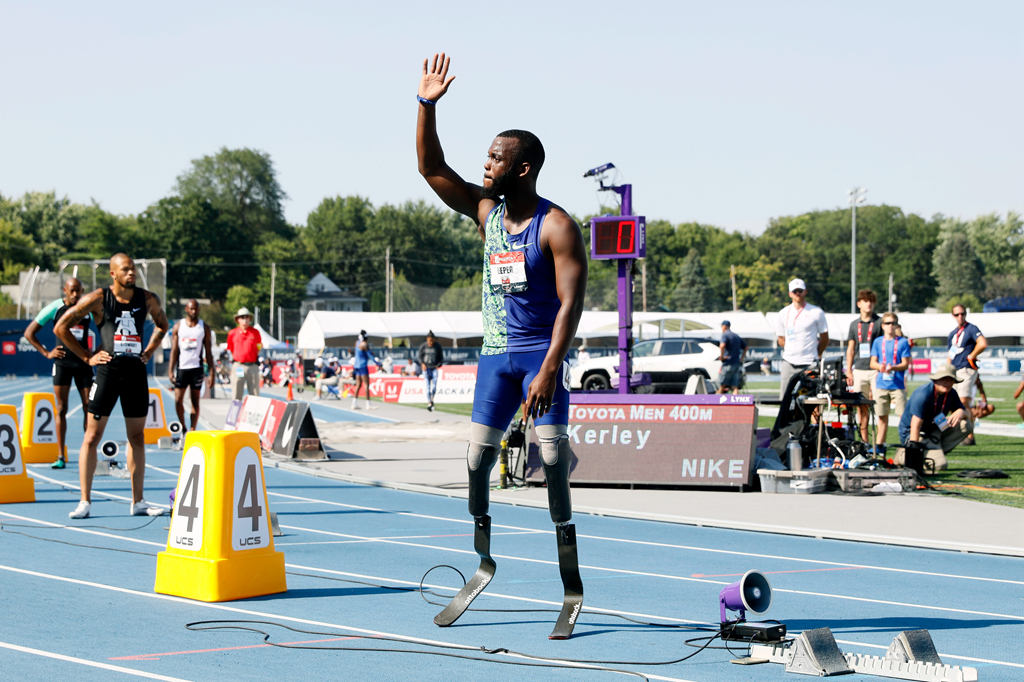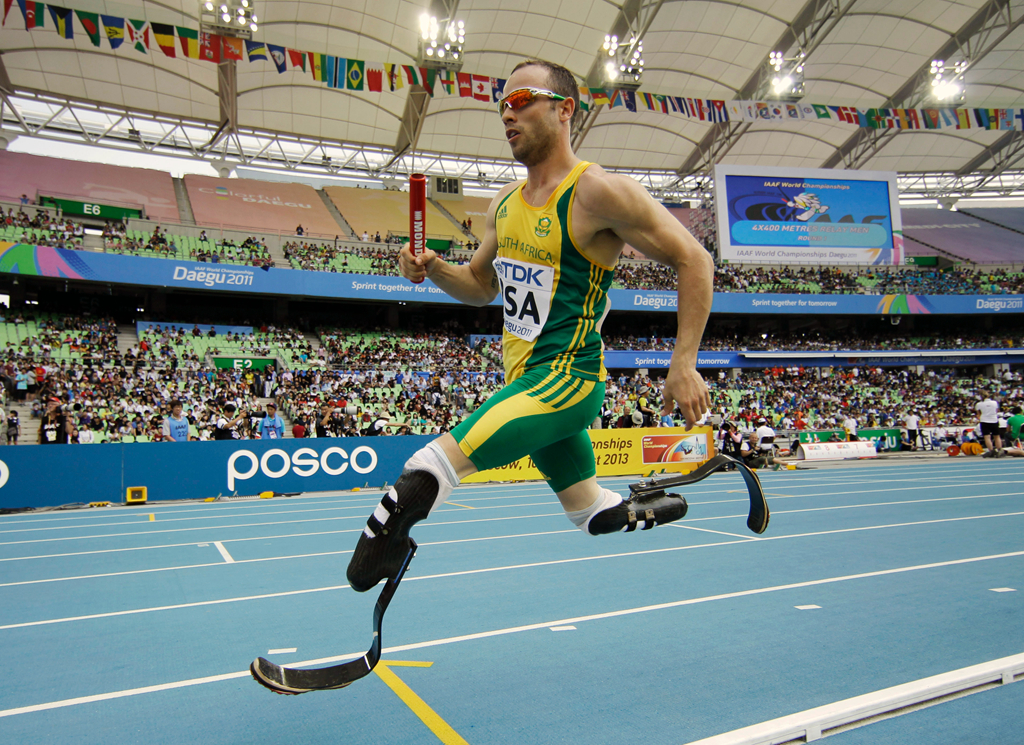
American runner Blake Leeper waves to the crowd before the men's 400-meter dash at the U.S. athletics championships in Des Moines, Iowa, U.S., July 27, 2019. /AP
American runner Blake Leeper waves to the crowd before the men's 400-meter dash at the U.S. athletics championships in Des Moines, Iowa, U.S., July 27, 2019. /AP
American runner Blake Leeper has been prevented from competing at the Tokyo Olympic Summer Games because his two prosthetic legs have been ruled as giving him an unfair advantage.
Leeper is "running unnaturally tall" with his prosthetic legs, the World Athletics mechanical aids review panel determined on Monday.
Last October, the Court of Arbitration for Sport (CAS) upheld a previous decision by World Athletics that says Leeper gets a competitive advantage against able-bodied runners because of the added height his prostheses give him.
"The difference in this new application by Mr. Leeper is that he now seeks approval to use (prostheses) that are set so that his standing height is approximately 184 centimeters, which is approximately five centimetres less than the standing height of 189.2 centimetres for the (prostheses) that were the subject of the application ruled upon by the CAS," World Athletics said.
The panel ruled that the use of the mechanical aids "in the form of passive-elastic carbon-fiber running specific prostheses" gave Leeper "an overall competitive advantage over an athlete not using such aids."
Under the rules governing maximum allowable standing height, Leeper should not be permitted to run at a height greater than 174.4 centimetres.
Monday's decision means Leeper, who was born with no legs below the knee, can't compete with his prostheses at World Athletics' major international events or the Olympic Games.

Oscar Pistorius of South Africa competes in a qualification round for the men's 4x400m relay at the World Athletics Championships in Daegu, South Korea, September 1, 2011. /AP
Oscar Pistorius of South Africa competes in a qualification round for the men's 4x400m relay at the World Athletics Championships in Daegu, South Korea, September 1, 2011. /AP
The case was similar to the one lodged by Oscar Pistorius. The South African runner was cleared to compete in able-bodied events after CAS found his carbon-fiber blades did not give him an advantage.
During the 2011 World Athletics Championships in South Korea, Pistorius made history as the first amputee athlete to compete at the world championships.
Pistorius went on to compete at the 2012 London Olympic Games where he reached the semifinals in the 400 meters. One month later, at the Paralympics, Pistorius and Leeper took the gold and silver in the 400 meters event.
Source(s): AP

